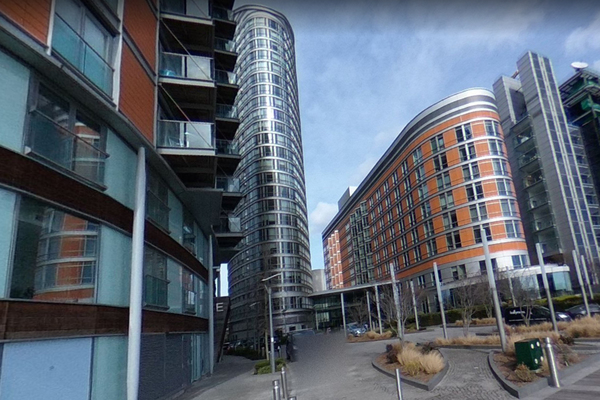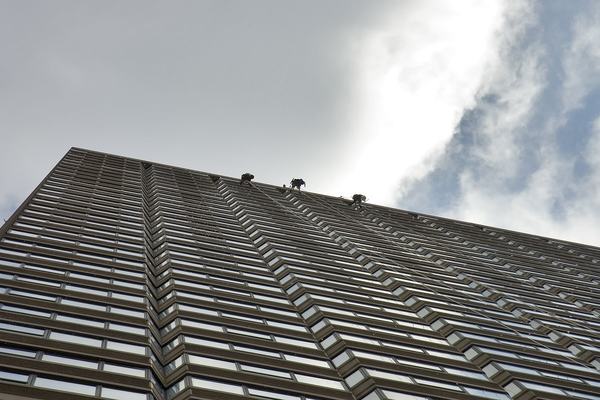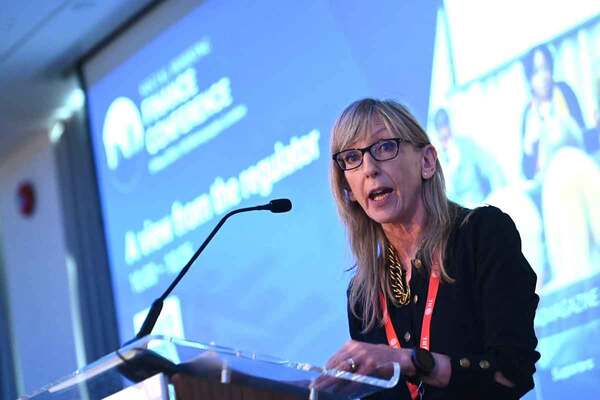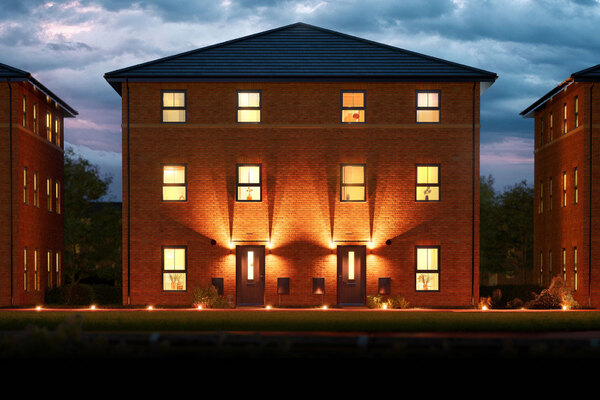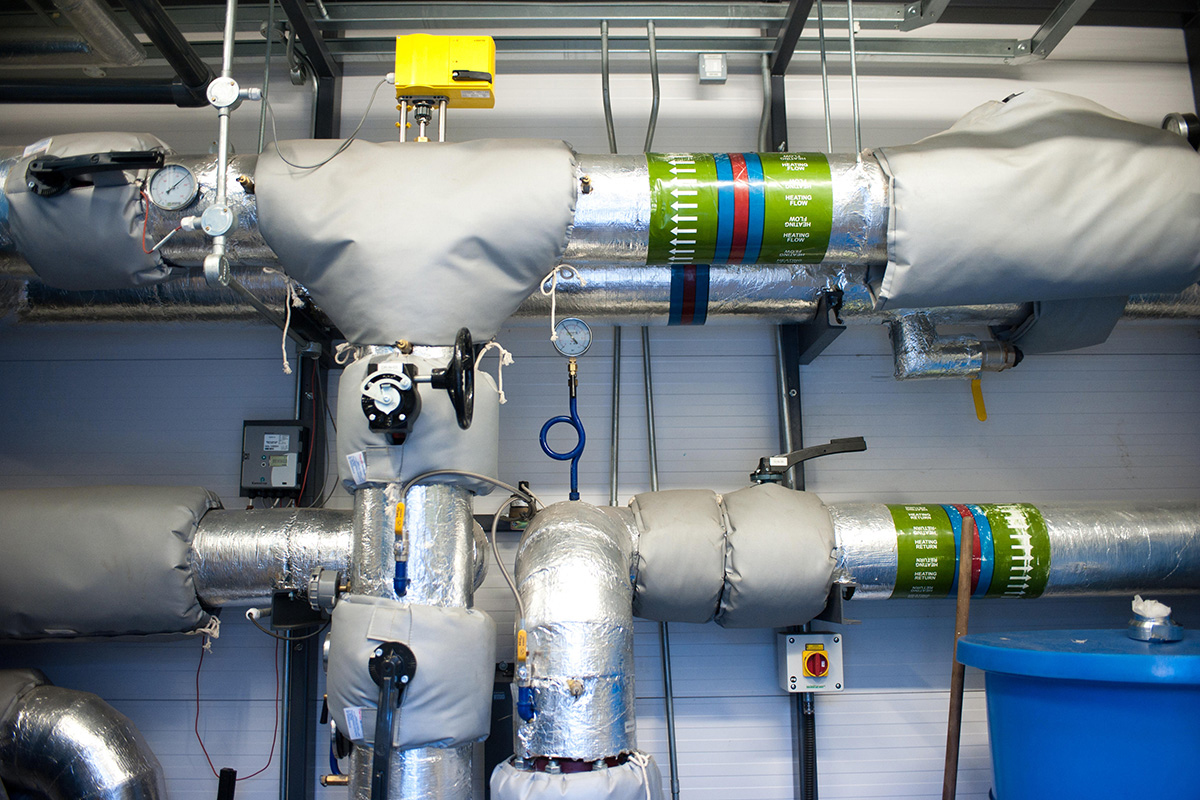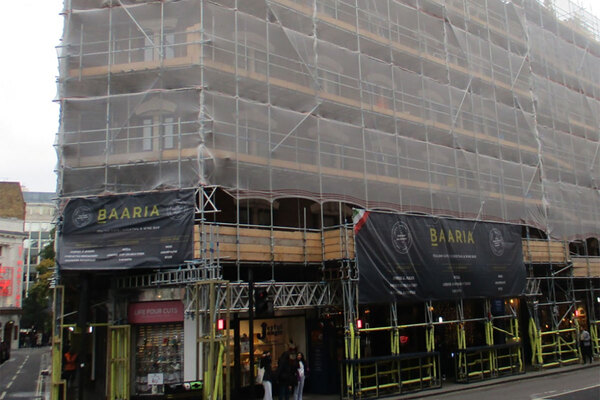You are viewing 1 of your 1 free articles
Residents facing £2m cladding removal bill on east London block after developer refuses to foot bill
Leaseholders on an east London apartment block fitted with Grenfell-style cladding could face a bill of more than £2m after the freeholder, a subsidiary of developer Ballymore, refused to pay for removal.
In a letter to local MP Jim Fitzpatrick, seen by Inside Housing, Ballymore – which also acts as the management agent on the development – confirmed that “it is the freeholders’ intention to charge leaseholders the cost of the replacement of ACM [aluminium composite material] panels” on New Providence Wharf in Poplar.
Completed in 2005, New Providence Wharf has a total of 1,259 apartments spread across five buildings.
In a later letter to housing minister Kit Malthouse, Mr Fitzpatrick said the cost of removing and replacing ACM cladding found on the buildings was £2.4m “but could be considerably more”.
Writing to Mr Fitzpatrick about the situation last month, David Pearson, finance director at Ballymore, said: “You will appreciate that the legal responsibility for costs to replace the cladding depends on the terms of the lease between the building owner and leaseholders.
“The lease in this case indemnifies the freeholder against the costs, given that the financial interest of the building is essentially owned collectively by the leaseholders and little economic value is retained by the freeholder.
“Given the age of the building, the warranty periods have expired so there is no legal recourse to pursue against builder and/or subcontractor, even if we deemed this appropriate.”
The freehold on New Providence Wharf is owned by Landor Residential, a subsidiary of Irish developer Ballymore.
Although there is no legal duty for freeholders to pay for the removal of cladding, government ministers have repeatedly urged them to do so.
Last month, James Brokenshire, housing secretary, wrote to 60 building owners and developers threatening enforcement action – including being barred from accessing government programmes.
In his letter to Mr Malthouse, Mr Fitzpatrick said the government’s establishment of a £400m fund for cladding removal on social housing blocks “was warmly received” but warned that “the situation in the private sector is far more complex and precarious”.
He continued: “Many freeholders operate intentionally opaque businesses from offshore locations and often communicate through third parties, making negotiations difficult or even impossible.”
Calling for the government to step in on behalf of leaseholders, Mr Fitzpatrick added: “I believe ministers have been emphatic in their statements, consistently urging freeholders to assume responsibility and pay up.
“While the APPG (All-Party Parliamentary Group) welcome this, firm encouragement is simply no longer enough – now is the time for the government to act in the private sector.
“No one should be left in the position of having worked and saved for years to become a property owner, to then learn their home is not safe and face the possibility of losing it through no fault of their own.”
Ballymore declined to comment.
While some developers, including Barratt, Mace Group, Legal & General, Peabody and Taylor Wimpey, have agreed to pay for the removal of cladding, others have not.
Residents of another east London block, Victoria Wharf in Tower Hamlets, have been paying increased service charges for several months due to fire patrols put in place after the building’s owner refused to pay for the removal of ACM cladding.
Almost 300 private blocks around the country are known to be affected by the presence of Grenfell-style cladding.
